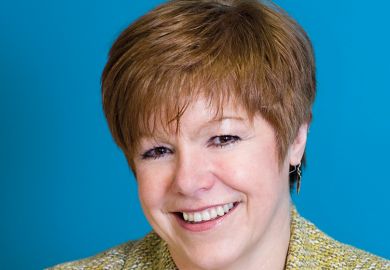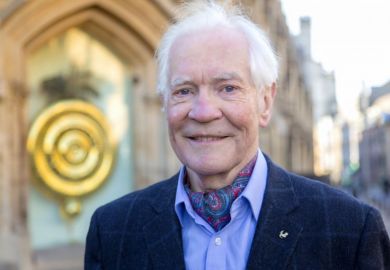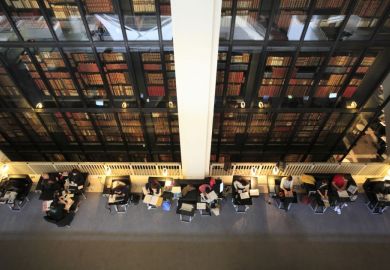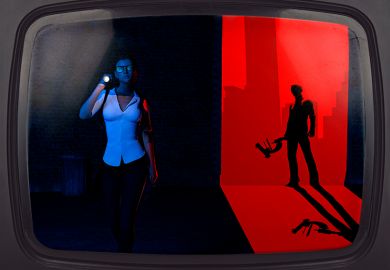Simon Armitage is an English poet, playwright and novelist. He was recently appointed professor of poetry at the University of Leeds, having previously been professor of poetry at the University of Sheffield. He is also professor of poetry at the University of Oxford. As part of Being Human, a UK-wide festival of the humanities led by the School of Advanced Study, University of London, he will be in conversation with the poet Daljit Nagra at Swansea University on 23 November.
You studied geography at Portsmouth Polytechnic (now the University of Portsmouth). That’s an unusual choice for a would-be poet.
I had absolutely no idea what I wanted to do in life, but I enjoyed geography. But the kind of geography I liked was a kind of romantic and sentimental geography involving maps, travel, exploration and expedition, which probably did not exist by the time I got to Portsmouth. Geography was going through a huge statistical revolution – everything was about statistical charts and models, so some of that romance was taken out of it.
Do you regret not having studied English literature as an undergraduate?
No – it would have been a disaster. I was a fairly contrary teenager and did not take kindly to people telling me what to do. Poetry was appealing then because it was “alternative” – it was something other people weren’t doing; it was a refuge, a secret, something furtive. It wouldn’t have worked for me to be taking part in it formally – I would have taken against it.
After graduating from Portsmouth, you started attending poetry classes at a local university. Was this experience crucial for your career?
I was writing a bit, but they were only doodles or sketches – I did not have much idea about what direction to take. It was reading poetry that I was most interested in. I started going to a poetry group at what was then Huddersfield Polytechnic [now the University of Huddersfield]. They were night classes really. I wanted access to books and conversation and a community that was talking about poetry that I had not encountered anywhere else.
As one of the UK’s best-known poets, how do you approach teaching students about poetry?
I have always taken an approach with teaching that I try to think of myself as a student, too – I don’t go in there as a wise person or a prophet. These days, students are reading people I’ve never heard of and getting poetry from places I’ve never heard of, obscure websites, so I’m always keen to listen.
In 1996, you wrote and narrated a poetic commentary for a BBC documentary about the nightlife of Leeds. What attracts you to the city?
I am drawn to any city as an exotic creature. I live in a very rural area and grew up on the edge of a moor; I live only three or four miles from where I was born and grew up, so I am always quite wide-eyed when I go to a city. We could have made that film in any other city – it didn’t need to be Leeds – but because I knew some of the geography and the accent and dialect were very familiar, it made it easier for me to talk about Leeds as a character I understood.
You are now the University of Oxford’s professor of poetry, a post previously held by W. H. Auden, Cecil Day-Lewis and other celebrated poets. Was this a daunting prospect?
I did have anxieties about it, but it wasn’t about this tradition. It was more a case of volunteering for something I wasn’t sure I could do – but that has been the case all the way through my life. When I started, I wasn’t sure I could publish a poem or a book or teach – everything I have undertaken has always seemed beyond me. I assume that is how you grow and develop.
What have you found most rewarding about the role?
I have never done much lecturing. Whenever I’ve taught it’s always been in a lecture or a seminar, so I was interested in the lecture as an art form – it is somewhere between a performance and an essay, so I wanted to make myself vulnerable to that. I have also been talking quite loudly about poetry for best part of 30 years and thought this would be an opportunity to slow down, think about things I was saying and test them out more rigorously. I also thought it would slow me down a bit – I [thought I] would stop rushing round giving readings, but I’m not sure it has.
Many younger poets are reaching new audiences by performing their work on YouTube. Do you see yourself doing this in the future?
Lots of my students are very scholarly but are [also] comfortable in that world, filming their poems, putting them out there on YouTube. It is not a position I want to write from – I am 54 and am pretty comfortable in the way I do things. It would be foolish to try to occupy a space that has been generated by a newer generation. But I admire it – young people have been castigated for not being interested in language, just because they weren’t reading as many books and [were] spending lots of time on their phones, but I never thought that was true. What they were doing while we were watching Antiques Roadshow was developing this new approach to poetry with a new language and a new medium.
jack.grove@timeshighereducation.com
Appointments
Jeremy Bradshaw has been named pro vice-chancellor (inter-national and doctoral) at the University of Bath. Currently chair of molecular biophysics and assistant principal of researcher development at the University of Edinburgh, Professor Bradshaw will start at Bath in February. Charged with developing its new doctoral college, he will draw on his experience as international dean in Edinburgh’s College of Medicine and Veterinary Medicine, where he led its international strategy and management of international research, staff, PhD links and exchanges for almost a decade.
Newsreader Marverine Cole is joining the University of North-ampton’s journalism department as a lecturer. The presenter has hosted news and current affairs programmes for Sky News, 5 News, ITN and the BBC, and she has produced radio documentaries for BBC 1Xtra, 5 Live and Radio 4. Cole is also a beer sommelier, accredited by the UK Beer Academy. “Our students will hugely benefit from learning with such an experienced journalist, film-maker and presenter,” said Matt Walsh, subject leader in journalism, media and performance.
Liza O’Connor-Stroud has been named vice-president (advancement) at the American University of Iraq, Sulaimani (AUIS), the country’s first non--government, not-for-profit, US-style institution of higher education. Before joining AUIS, she helped to develop a $200 million (£152 million) fundraising campaign as vice-president of the American Ireland Fund.
David Loudon has been named Durham University’s director of estates and facilities. He has previously held the same role at the University of St Andrews.
Philip Kent is the University of Bristol’s new director of libraries. He was most recently university librarian and executive director of collections at the University of Melbourne, and was previously university librarian at Victoria University.
Register to continue
Why register?
- Registration is free and only takes a moment
- Once registered, you can read 3 articles a month
- Sign up for our newsletter
Subscribe
Or subscribe for unlimited access to:
- Unlimited access to news, views, insights & reviews
- Digital editions
- Digital access to THE’s university and college rankings analysis
Already registered or a current subscriber?










